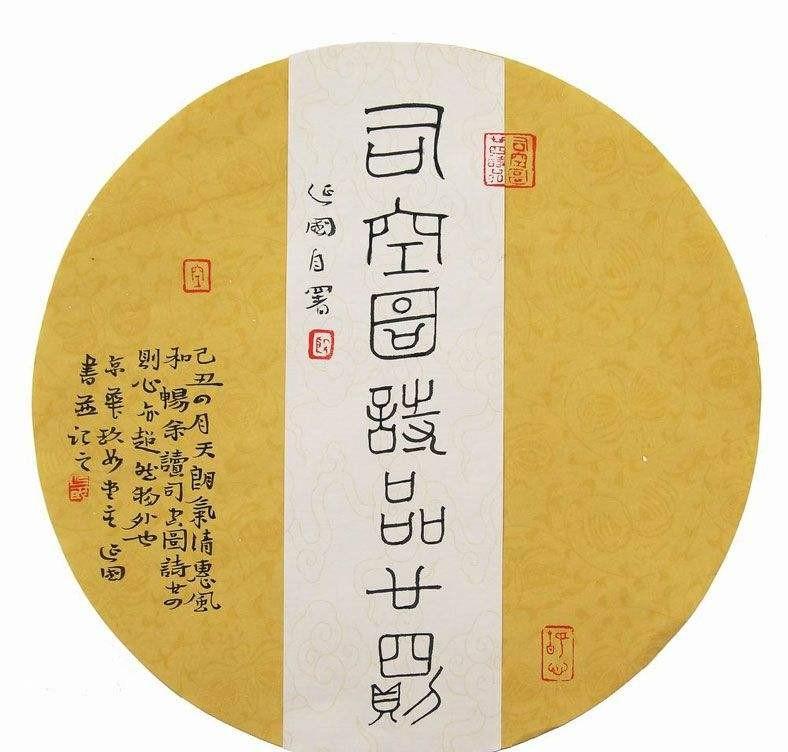In 904, Zhu Wen killed Tang Zhaozong and installed the last emperor of the Tang Dynasty, Emperor Ai of Tang, indicating that Zhu Wen actually had the highest power in the Tang Empire and could depose the emperor at will.
It was also in this year that Zhu Wen launched a final attack on the remaining Mendi forces of the Tang Dynasty. In this campaign of slaughter, which mainly targeted the old clans of the Tang Dynasty, Sikong Tu was the lucky one.

Sikong Tu, the character table sage, is not only a famous poet in the late Tang Dynasty, but also a writer of "Twenty-Four Poems", which is one of the few poets in Chinese history, with a high reputation.
When Zhu Wen killed Tang Zhaozong, Sikong Tu was the overseer of the imperial history, and Sikong Tu was afraid, and the emperor of Tang beged to pay tribute, saying:
"I hope that the emperor will not be an official, but can be tested for decline and decline, and the full name of the emperor is honored."
And Emperor Ai of Tang also pushed the boat along the water with an edict, allowing Sikong Tu to return to his hometown, saying:
"Raise the high to be proud of the world, move the mountains to fish for the name, the heart is happy to gargle, and the shi is not in the food."
The emperor wrote the edict on behalf of the emperor, it was Zhu Wen's confidant who usurped the Tang Dynasty's first thief, Liu Xuan, who was then the prime minister, Liu Xuan originally wanted to harm Sikong Tu, but Sikong Tu came to this move, and could not find a reason to refuse, after all, this everyone is not in the official field, you can also save a lot of things, there is no harm to yourself.
It didn't take long for the famous "Disaster of the White Horse Stagecoach" to occur.
More than thirty noble ministers who once looked down on Liu Xuan, the prime minister of the Cold Gate, such as Pei Shu from the Pei clan in Hedong, Cui Yuan, one of the five surnames and seven sects, and the lonely loss of the Longhaomen Dugu clan, were all brutally killed at the White Horse Station in Huazhou (present-day Hua County, Anyang, Henan).
Zhu Wen's confidant Li Zhen, who was also from the Cold Gate, was mixed in Chang'an in his early years, and he was not less blinded, and felt that he still did not understand hatred, and advised Zhu Wen: "This generation often claims to be a clear stream, and it is advisable to throw itself into the Yellow River, so that it is a turbid stream." ”
Zhu Wen took Li Zhen's advice in laughter, and more than thirty Tang dynasty ministers whose bones were not cold were thrown into the rushing Yellow River, which also marked the emptiness of the forces supporting the Tang Dynasty.
In this way, Sikong Tu became a lucky person who escaped persecution.
The Old Book of Tang * Sikong Tu Biography records:
"If the calamity of the willow is returned to the mountain, it is foretold for the end of the life." The late people come, cite the circle, give poetry to the discretion, people or difficult colors, the figure regulations are known: the big mark, the shadow is consistent, not only temporarily swimming here, why not be widespread? ”
This means that after Sikong Tu told the old man to return to the hermitage to The Middle Mountain, he did things like the coffin tomb in advance, and when a friend came to visit, he took his friends to visit his own renovated cemetery and chanted poems here.
But the friends felt depressed and sad, and Sikong Tu said to the friends: "The person who is well-versed has a broad mind, and there is no difference between life and death for him, I am ready to sleep here for a long time, so why can't you think about it?" ”
However, the antelope felt that although Sikong Tu escaped the "disaster of the White Horse Stagecoach" and his life was saved, there was no other meaning, under the plot of Liu Xuan and Li Zhen, Zhu Wen's famous and prestigious clan of Bao Tang was slaughtered, and the demise of the Tang Dynasty was only a matter of time.
In the second year of Later Liang Kaiping (908), Zhu Wen, the Taizu of Later Liang, who had already accepted Zen concessions, still maintained a fierce and fierce style, and the poor Emperor of Tang eventually escaped the fate of being killed.
When he heard the news of the death of Emperor Tang, he finally could no longer bear his status as a lucky man, and he died of hunger strike at the age of seventy-two.
[Thank you for reading, liking, forwarding, commenting and paying attention, I am Antelope Feidu, the leader of the Zhongjiantang Historical and Cultural Exchange Group, good at the history of the Five Dynasties of Sui and Tang Dynasties and the creation of online novels. Zhongzheng Jiansu, determined to promote history and culture, antelope hanging horns, multiple perspectives to interpret history]